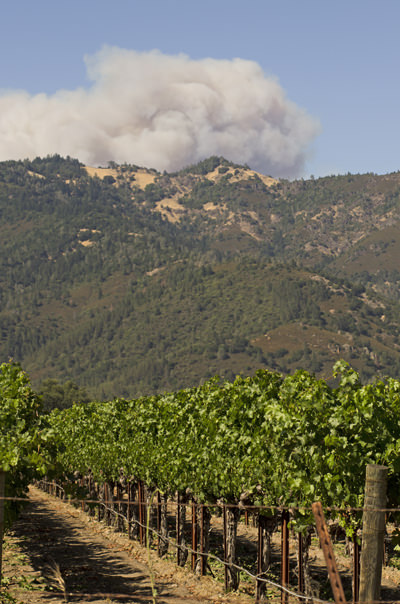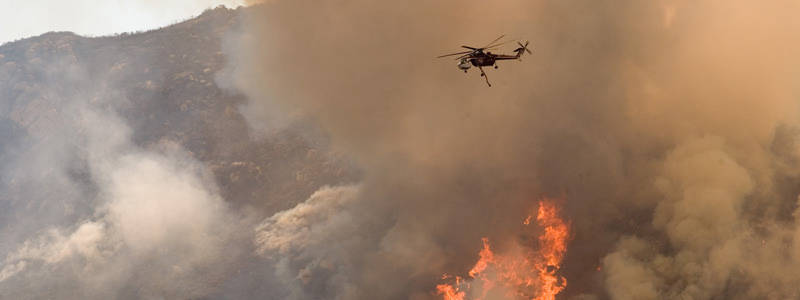It seems obvious that wildfires in a vineyard would be detrimental to the grape yield, but what about smoke from nearby fires? Winemakers in Napa are concerned with how smoke from the huge Rocky fire in neighboring Lake County will affect their grapes.
“It’s a really big concern for a lot of these vineyards who are near fires and all that smoke,” one Sonoma wine producer who asked to remain anonymous told the Guardian. “For red grapes, where the skin is still used in the winemaking process, that smoke could potentially infuse and create abnormal flavors.”
A lot of vineyards have already sent grapes to laboratories to determine if they’ve been affected by the smoke. The stakes are incredibly high; according to the Wine Institute, California’s wine industry, produces an average of 90% of American wine, so the potential costs of grapes being contaminated by smoke could be significant. Last year alone, the state’s wine sales last year topped $24 billion. The vineyards have already been affected by the draught, mostly in the rise of the price of wine.

With local tourism, the wine industry brings in $50 billion of revenue. “It’s definitely a concern for us here in Napa and across wine country because we are unsure exactly what the fires and the smoke will do to the grapes,” said Dan Abrams, a visitor to the Carpe Diem Wine Bar in Napa.
Interestingly, some have been able to view the billows of smoke as having a positive effect on the grapes. Andy Beckstoffer of Beckstoffer Vineyards says that due to current wind conditions, the smoke is heading east and away from grapes, but that could change at any time. “It really depends on where the grapes are located and the state of the grapes,” he said last week. He also mentioned that a majority of red grapes are in a hardened state at the moment, but as they begin to soften toward the end of the month, this will make them more susceptible to smoke.
As it happens, Australia’s Department of Agriculture has already had the chance to investigate the effect smoke has on grape and wine production, after the country was hit with large wildfires in 2003 near Canberra. And it wasn’t good.
“Wines made from grapes exposed to smoke during sensitive growth stages can exhibit aromas and flavors resembling smoked meat, disinfectant, leather, salami and ashtrays,” said a report. It noted that when “unfavorable smoke characteristics are detected by consumers at high concentrations”, the wines could be “unpalatable”.
“Unsalable wines result in financial losses for producers with costs flowing on to wine brands, market presence and future sales,” the report said
In California, those invested in winemaking all across the state are watching the daily efforts to extinguish or contain the blazes that have already come dangerously close to their grapes.

